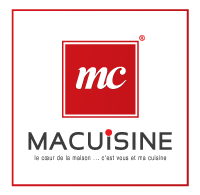What will be the way forward for printed textbooks during the electronic age?
What will be the way forward for printed textbooks during the electronic age?
Emergence of smartphones and E-readers has adjusted the looking through behavior. E-books have replaced the actual physical guides to some sure extent. Has this adjusted the reading habit for the human people? Has it higher the volume of visitors and strengthened the educational technique? If that is so, do the printed guides vanish on the scene inside the coming many years? What’s the way forward for printed publications inside electronic age?
It is genuine which the digital technological innovation has made a good impression on instruction. An entire library might be positioned within a handheld system during the method of E-books. They’re safe from attainable injury, simply searchable by title or creator title and they are portable. An E-reader product is mild, straightforward to have, very easy to look for and readable at low light issues. Are these comforts ample for E-readers to switch the printed textbooks altogether?
“Not at all”, says Michael Suarez, the Director of U.Va.‘s Uncommon Book University, in an article revealed in . He suggests, “The world of producing, or chirographic culture, didn’t switch orality. Print did not substitute crafting by hand, movie didn’t end radio, and television did not prevent the globe of movie.”
Majority of men and women however desire to keep guides in hand, really feel their age-old fragrance, listen to the audio the web pages make when turning them, and be just one with them before the final web site is browse through. It is usually an outdated practice and may not go that simply.english sentence checker online This dates back again to about five hundred yrs when Gutenberg revolutionized printing, and seeing that then books are already regular companions belonging to the human race.
But the electronic revolution seems to require studying in a absolutely differing way. Folks that argue with the digital medium of e-book intake have several details to create and the primary just one is always that it saves trees and setting. Other perks are: E-readers occur with built-in dictionary and reference, which minimizes researching time and makes browsing concentrated and speedier; a huge number of books, some uncommon and outside of print, can be found using the web at no cost; emerging writers can generate and publish their E-books lacking a intermediary.
of Mashable.com writes, “E-books topped print sales for the first time in 2011, a trend that continued into 2012”. In addition to that, libraries are turning for being all-digital. To illustrate, Bexar County, Texas has launched an electronic-only library generally known as. In spite of this, Suarez notes that inside 12 months of 2010, the number of printed titles was maximum while in the publishing history. Does that necessarily mean the emergence of E-books actually amplified the quantity of visitors?
The other many benefits of digitization of books are that they tend to be in multimedia structure. Meaning books is usually inside form of audio books, animated flicks, digital books that consist of a lot of pictures and illustrations, animations, seem outcomes and puzzles. This helps audience; most definitely learners and youngsters to grasp the content material significantly better.
Not just children, even elders like it. “I chosen hyperlinks in my last book in lieu of most footnotes, and no-one complained”, claims Dan Gillmor, Director of your Knight centre for digital media entrepreneurship at Arizona Point out University’s Walter Cronkite faculty of journalism, within an blog post revealed on theguardian.com. He schemes to go even further with films along with other materials that deepen the know-how.
But the correct undergo of residing accompanied by a guide, immersing in it and emerging out of it as a new particular person available while using the electronic books? Or is it just results in being a practice to collect many hundreds of guides with a equipment, and do lookup and browse in the gadget as a substitute for truly browsing them? “What occurs to our learners in the event the organization of looking through is replaced by mere exploring?”, asks Michael Suarez.
But, audience like Josh Cantone have some points to argue concerning why printed books won’t ever die. In response to him, publications have physical presence and beauty, which we cannot really manage to skip. They are nostalgic. A group of guides can define its owner and, and finally, they can be collectible. In spite of this, only foreseeable future can tell if these include a sufficient amount of for printed books to survive.


